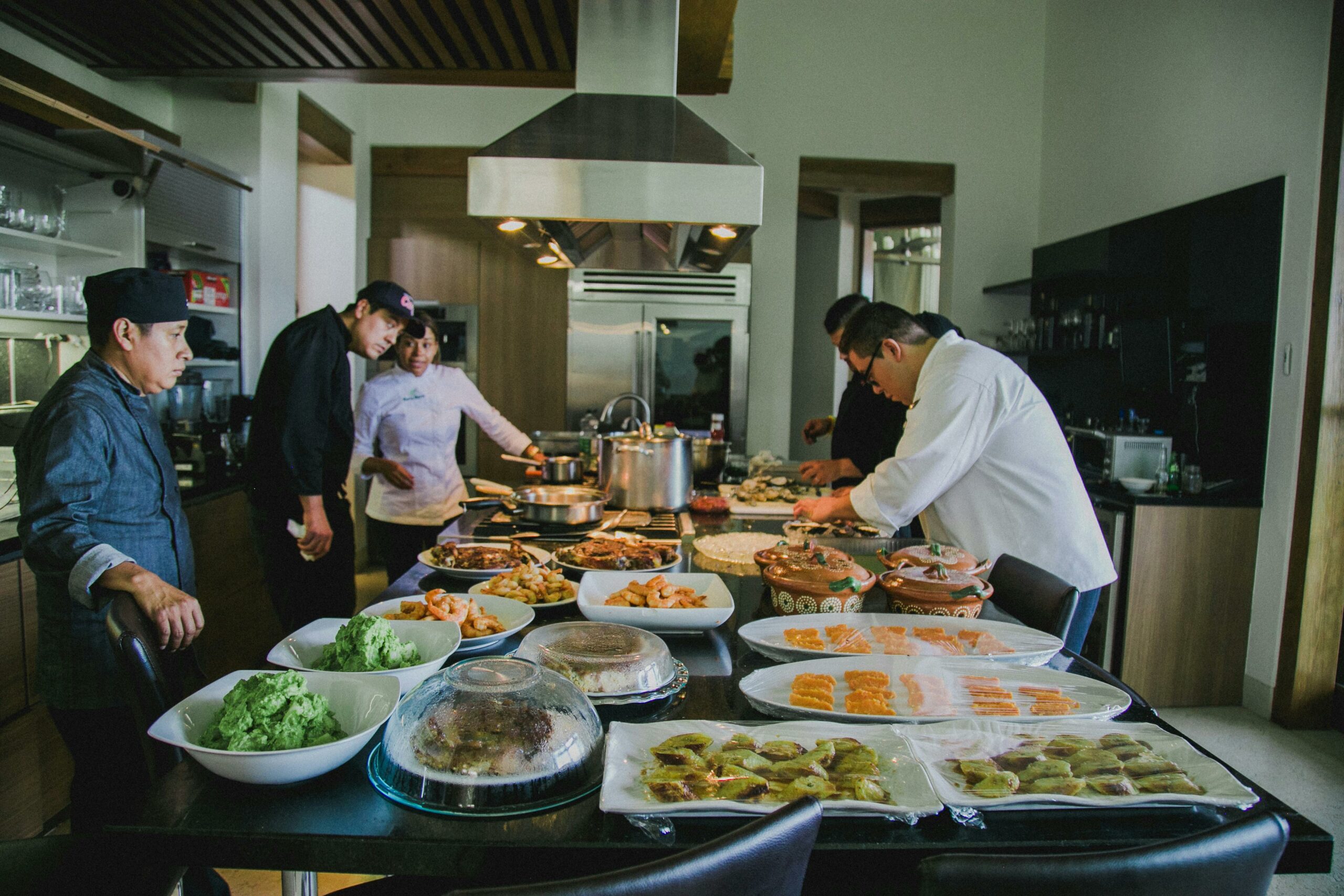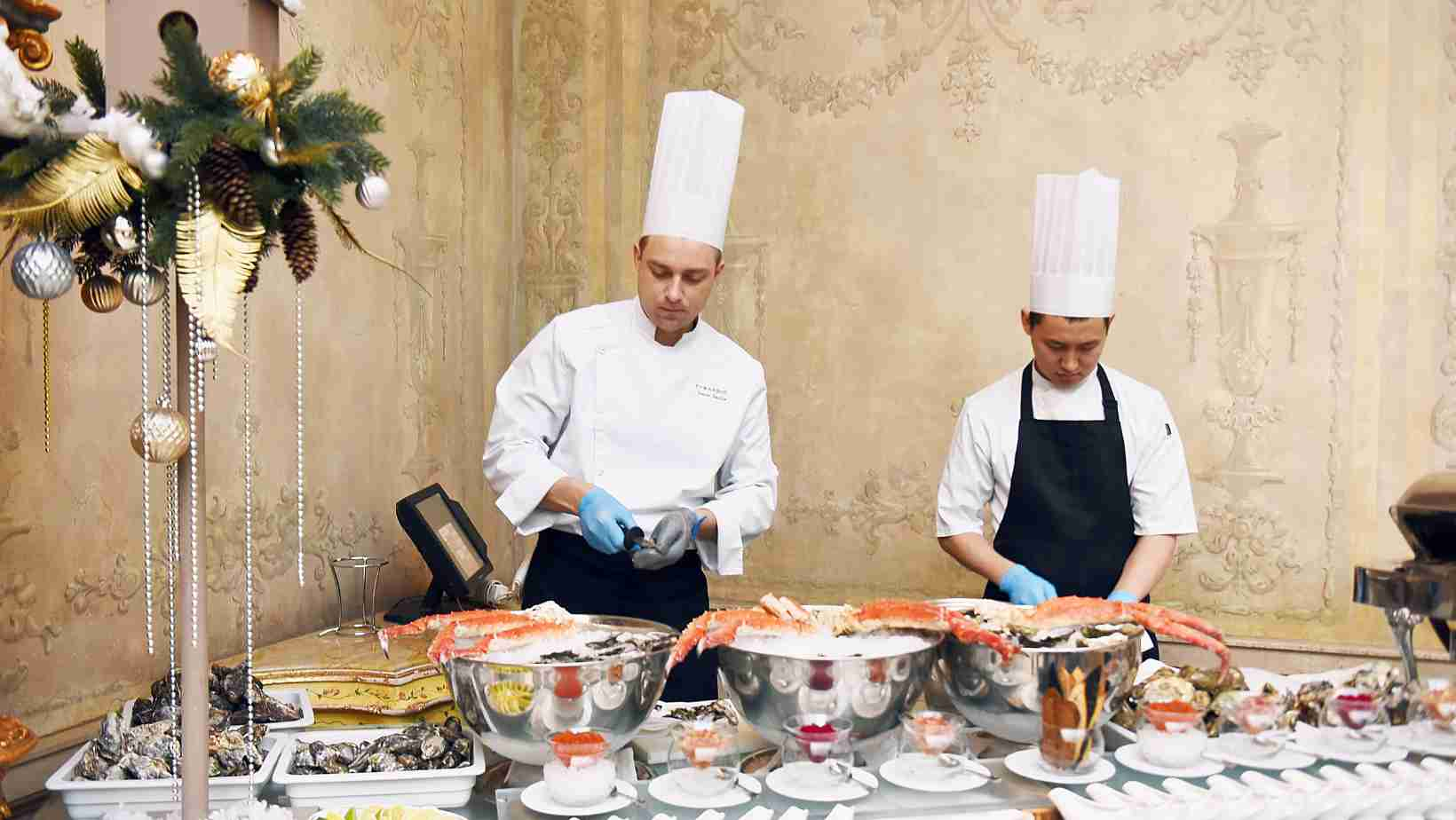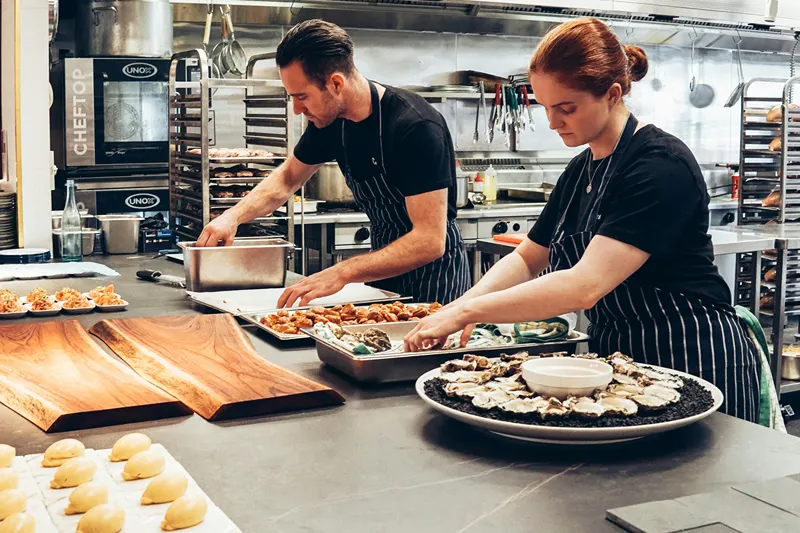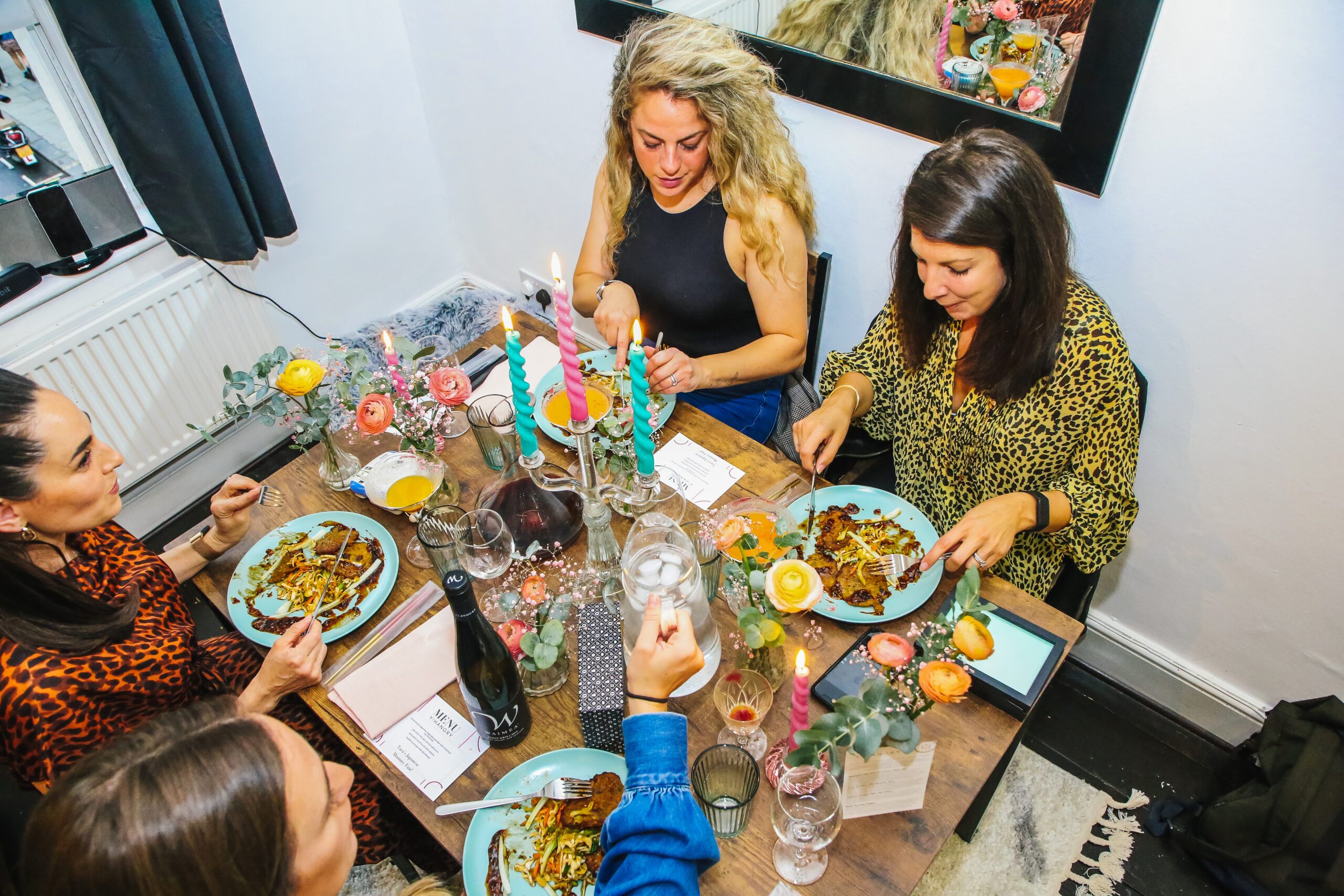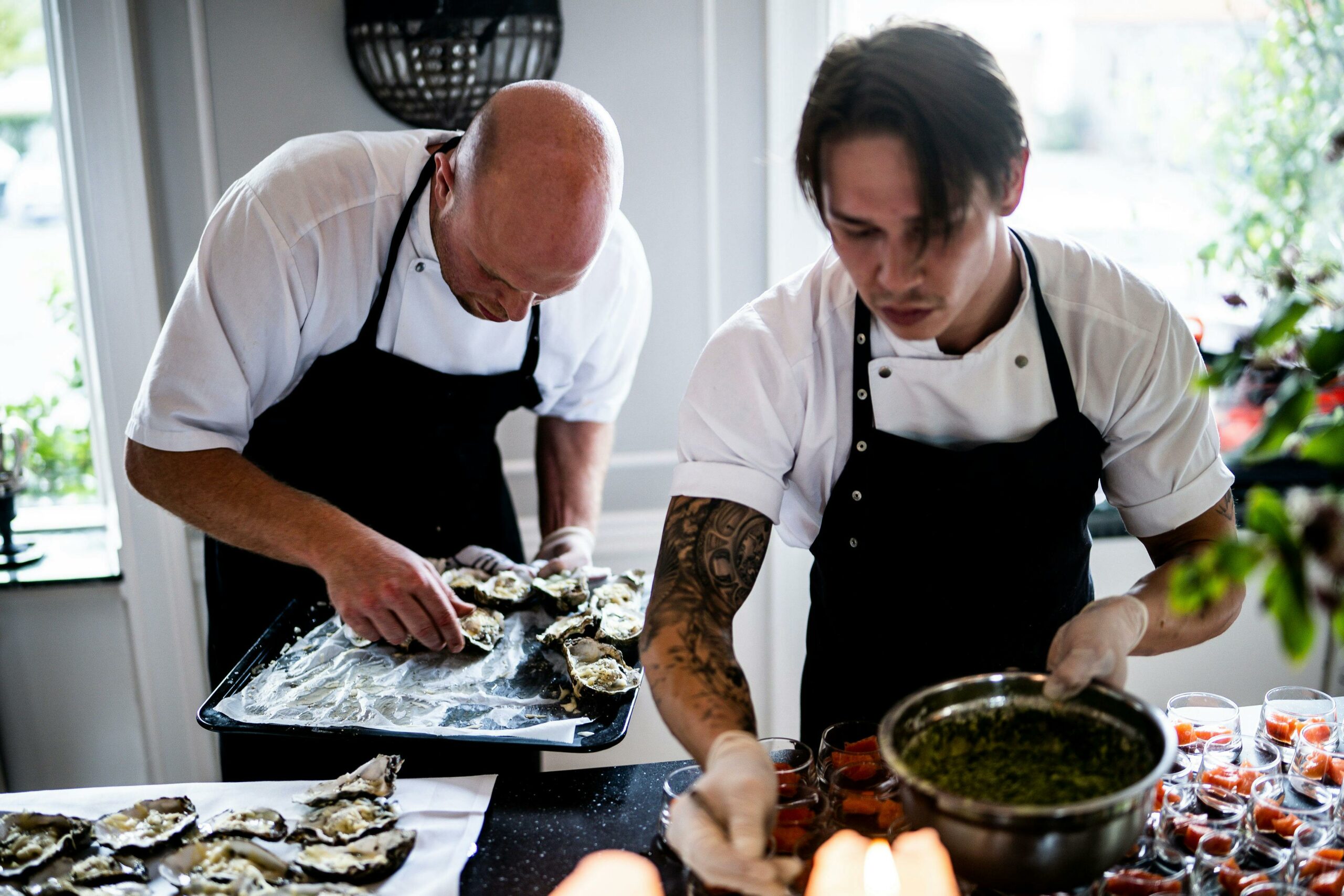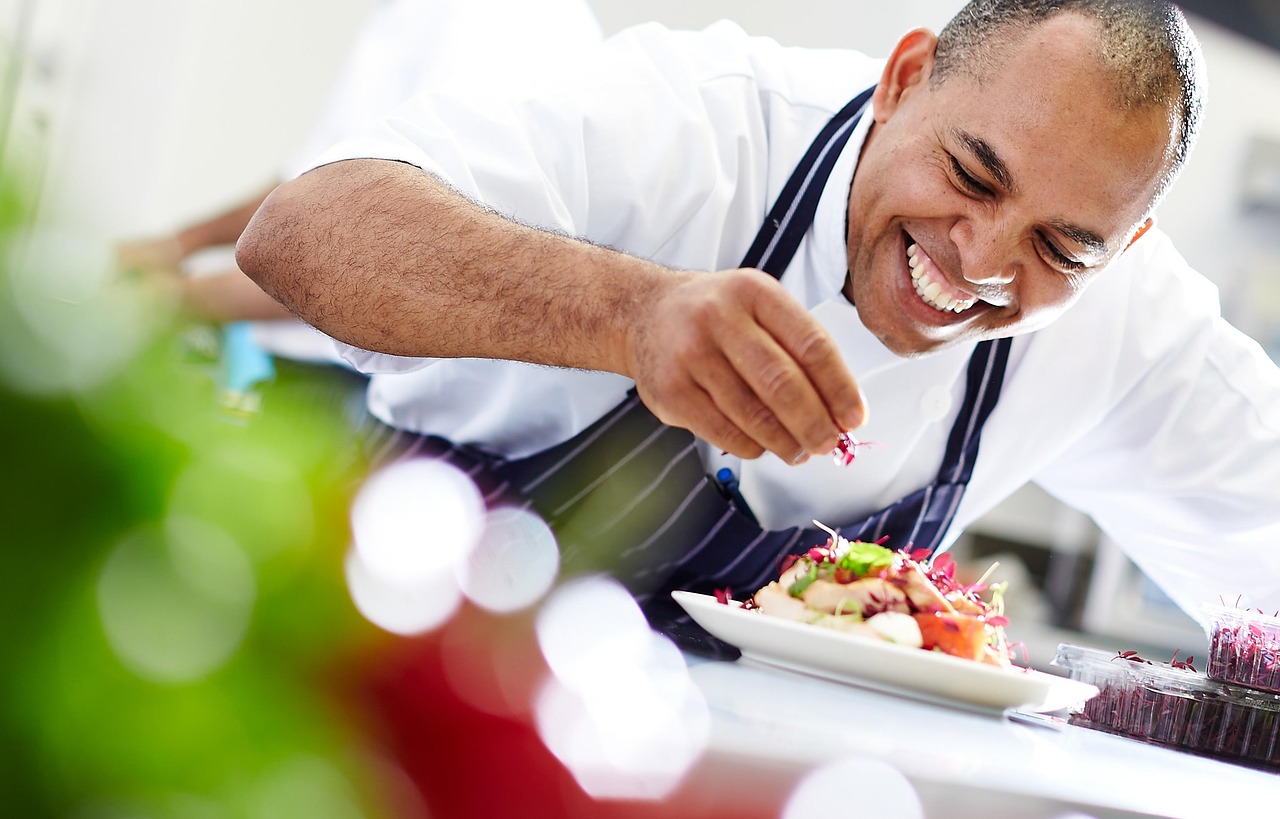Your Guide to Catering Business Insurance in the US
Why Do You Need Insurance for a Catering Business?
Operating a catering business in the US comes with unique risks that can result in significant financial and legal consequences without proper coverage. From preparing and serving food to managing events, caterers face potential liability for foodborne illnesses, slips and falls, or accidental damage to a client’s property. Without liability insurance for catering business operations, a single claim could jeopardize your financial stability and reputation.
In addition to managing risks, insurance for a catering business helps comply with local and state regulations, particularly if you hire staff or operate from a commercial kitchen. Even smaller setups, like home catering businesses, need protection against unexpected events. Having comprehensive insurance for a catering business ensures you’re prepared for the unpredictable, allowing you to focus on growing your business with peace of mind.

Types Of Insurance For Catering Businesses
1. General Liability Insurance
General liability insurance is essential for protecting your catering business insurance from third-party claims, such as injuries or property damage caused by your operations. For example, if a guest trips on your equipment or is injured by hot food, this insurance covers medical and legal costs. It’s necessary because most US venues require proof of this insurance, and without it, a single lawsuit could financially cripple your business. General liability insurance provides peace of mind, allowing you to focus on your work without worrying about unexpected liabilities.
2. Public Liability Insurance
Public liability insurance protects your catering business insurance from claims made by customers or members of the public who suffer injury or property damage due to your catering services. If a guest trips over your equipment or your food damages your property, this insurance helps cover legal fees and damages.
In the US, it’s essential for catering at public events or venues with large crowds. Many clients and venues will ask for this coverage. Without it, your business could face significant legal expenses, making public liability insurance catering business essential to protecting your financial stability.
3. Commercial Property Insurance
Commercial property insurance protects your business insurance for catering from damage or theft of physical assets, such as kitchen equipment, vehicles, or office space. In the US, this insurance is critical if you own valuable equipment or operate from a commercial space.
Without it, replacing damaged or stolen assets could disrupt your operations. This coverage is necessary because it ensures your catering business insurance can quickly recover from incidents like fires or theft, minimizing downtime and helping you continue your operations without financial strain.
4. Workers’ Compensation Insurance
Workers’ compensation insurance is mandatory in most US states for businesses with employees. It covers medical costs, lost wages, and rehabilitation if an employee is injured while working. This type of insurance for catering businesses is necessary because failing to provide it can result in fines, penalties, and lawsuits.
It shows your commitment to employee safety and legal compliance. With workers’ compensation insurance, your business stays protected from the financial burden of workplace injuries while ensuring that your employees are taken care of.
5. Liquor Liability Insurance
If your catering business serves alcohol, liquor liability insurance is essential. This coverage protects your insurance for catering business from claims arising due to incidents caused by intoxicated guests, such as accidents or property damage.
In many US states, liquor liability is required if you serve alcohol. It’s necessary because, without it, your business could face costly lawsuits stemming from alcohol-related incidents. Liquor liability insurance ensures you are financially protected and legally compliant when providing alcohol at events, safeguarding your catering business from potential legal fallout.
6. Business Interruption Insurance
Business interruption insurance is essential for your insurance for catering business to cover lost income and ongoing expenses when operations are halted due to fires, natural disasters, or pandemics. This coverage is necessary in the US, as it helps you continue to pay fixed expenses, such as staff salaries or equipment costs, even during downtime. Without it, your catering business could face financial hardship while recovering from unexpected disruptions. Business interruption insurance ensures that your business remains stable and can recover quickly after an interruption.

Specialized Insurance Options for Different Catering Setups
Home Catering Businesses
A home catering business’s concerns include protecting equipment and liability for food-related issues. Since your kitchen may not be covered under commercial policies, you’ll need insurance for a home catering business that protects your equipment against damage or theft.
Additionally, liability coverage is necessary in case of foodborne illnesses or allergic reactions. Liability insurance for catering businesses ensures your business is protected from claims if something goes wrong. Be sure your home kitchen complies with local regulations and is properly insured for health and safety risks by using an EHO inspection checklist.
Small Catering Businesses
Insurance for small catering businesses often focuses on affordability while ensuring comprehensive coverage. Essential protections include general liability and workers’ compensation insurance if you have employees or if you’re a private chef.
Small businesses can save money by bundling policies, such as commercial property insurance with business interruption insurance, which helps cover equipment loss and income loss during downtime. Bundling provides cost-effective options without sacrificing important coverage.

How to Choose the Right Business Insurance for Catering
Choosing the right business insurance for catering is essential for protecting your business from unforeseen risks. Follow this step-by-step guide to ensure you get the coverage that best suits your needs:
1. Assessing Risks Specific to Your Operation
Start by identifying the unique risks your business insurance catering needs to cover. Do you cater at large events, work with alcohol, or have employees? Consider potential issues such as foodborne illnesses, equipment damage, or third-party injuries. Understanding your business’s risks will help you determine the coverage types you need.
Whether you're hosting a special celebration dinner, looking for a chef during your holiday or weekly meal prep, we will match you to the perfect chefs.
Start here2. Determining Coverage Levels:
Once you’ve identified your risks, determine the right coverage levels. For example, if you frequently cater at large venues, higher limits for general liability insurance may be necessary. For businesses with employees, workers’ compensation insurance is a must. Ensure your coverage aligns with your business size and activities.
3. Comparing Quotes and Insurers
Next, compare quotes from multiple insurers. Each provider offers different policies, coverage options, and premiums. Look for a policy offering a balance of cost and comprehensive coverage to ensure you’re protected without overpaying.
4. Understanding Local Laws and Regulations
Finally, ensure you comply with local laws and regulations. Different states have specific requirements for business insurance for catering, like mandatory workers’ compensation or specific liability insurance. Understanding these regulations ensures you meet all legal obligations and avoid penalties. Understanding the laws further helps if you’re setting up a personal catering business if you have the skills to be a chef.
Tips for Getting Competitive Insurance Quotes
- Bundle Policies: Many insurers offer discounts when you combine coverages like general liability insurance, workers’ compensation, and commercial property insurance into one package. Bundling can reduce overall costs while maintaining the necessary protection for your catering business insurance.
- Maintain a Good Claims History: Insurance companies reward businesses with a clean claims history. If your insurance for the catering business shows that you’ve avoided accidents, property damage, or employee injuries, insurers may offer you lower rates.
- Demonstrate Safety Practices and Compliance: Showing your business follows safety protocols can help reduce risks and lower premiums. Insurance companies may offer discounts to businesses prioritizing safety and compliance in their catering business insurance.
- Work with Brokers or Industry-Specific Insurers: Working with an insurance broker or an insurer specializing in the catering industry can help you find tailored policies at better rates. Brokers have access to multiple insurers and can negotiate on your behalf to secure the best terms for your insurance for the catering business.

Elevate Your Catering Services With Yhangry
Once you have obtained your catering business insurance, the next step is to find clients for your catering business. Platforms like yhangry seamlessly bridge the gap between private chefs/caterers and customers in the US. By registering as a private chef on Yhangry, you can create personalized menus for your clients and set your prices freely, enabling you to offer memorable dining experiences across the country.
- Do I need catering insurance if I work as a freelance chef?
-
Yes, freelance chefs should have catering business insurance to cover potential risks such as accidents, injuries, or property damage while on the job. Even if you’re working independently or through platforms like yhangry, insurance ensures that you’re protected no matter where you’re cooking or catering.
- How much does catering insurance typically cost in the US?
-
The cost of catering business insurance in the US varies based on factors such as the size of your business, the coverage limits, and the type of events you cater. On average, small catering businesses can expect to pay between $250 to $1,500 annually. However, it’s best to get quotes based on your specific needs to find the most accurate pricing.
- Why is catering insurance important for my business in the US?
-
Catering business insurance is essential as it protects your business from unexpected costs due to accidents, property damage, or equipment issues. With the right coverage, you’re financially safeguarded, allowing you to focus on delivering a great service without worrying about potential liabilities.
- How much does a private chef usually make in the US?
-
The private chef’s salary in the US can range from $50,000 to $100,000 annually, depending on factors like experience, location, and the number of clients they serve. Private chefs often charge $50 to $150 per hour, making it a lucrative career for skilled professionals.
